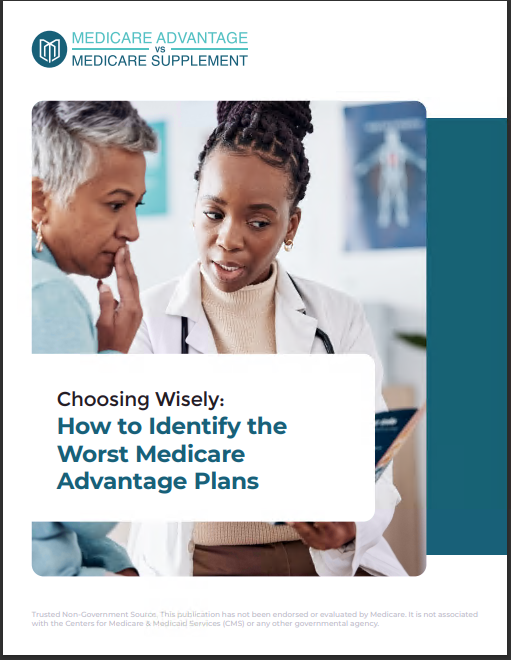Key Takeaways
-
Medicare Part B premiums continue to increase in 2025, and understanding what you’re paying for is essential to avoid coverage surprises.
-
While Part B covers a wide range of outpatient services, it does not cover everything, and many people assume more is included than actually is.
What Medicare Part B Actually Covers
Medicare Part B is designed to cover medically necessary services and preventive care. In 2025, this includes services you receive outside of a hospital setting, but it also extends to some inpatient care that doesn’t fall under Medicare Part A. Here is what’s typically included:
Medically Necessary Services
These are services or supplies that are needed to diagnose or treat a medical condition. They include:
-
Doctor visits (primary and specialists)
-
Outpatient care at hospitals
-
Durable medical equipment (DME) like walkers, wheelchairs, and oxygen
-
Ambulance services (if other transportation could endanger your health)
-
Mental health services (outpatient counseling, psychiatric evaluations, etc.)
Preventive Services
Part B also provides coverage for preventive healthcare, which includes:
-
Screenings (e.g., for diabetes, cancer, cardiovascular disease)
-
Vaccinations (flu, pneumonia, hepatitis B, COVID-19)
-
Annual wellness visits
-
Nutrition therapy for diabetes or kidney disease
It’s important to note that these services must be approved by Medicare and performed by providers who accept assignment. Otherwise, you may face higher out-of-pocket costs.
What Part B Does Not Cover
This is where many people get caught off guard. Even though you’re paying a monthly premium, Medicare Part B doesn’t cover:
-
Prescription drugs (except in limited outpatient situations)
-
Routine dental, vision, and hearing care
-
Long-term custodial care
-
Cosmetic procedures
-
Most chiropractic care
To get coverage for these services, you generally need to enroll in additional insurance or pay out-of-pocket. Understanding these exclusions can help you plan for supplemental needs.
2025 Premiums: What You’re Paying Now
As of 2025, the standard monthly premium for Medicare Part B is $185. However, this amount can increase based on your income through something called the Income-Related Monthly Adjustment Amount (IRMAA). If your modified adjusted gross income (MAGI) from two years prior (2023) exceeds certain thresholds, you will pay more each month.
Income Brackets That Affect Your Premium
-
Individuals earning more than $106,000
-
Married couples filing jointly earning more than $212,000
The premium increases in tiers above those income levels. The higher your income, the higher your Part B premium. This tiered structure often takes retirees by surprise, especially those who experience one-time income spikes (e.g., home sales, IRA withdrawals).
Deductibles and Cost Sharing in 2025
Even after paying your monthly premium, you are responsible for additional out-of-pocket expenses. These include:
-
Annual deductible: $257 in 2025
-
Coinsurance: After meeting the deductible, you typically pay 20% of the Medicare-approved amount for most services
-
Excess charges: If your provider doesn’t accept Medicare assignment, they may charge up to 15% more than the Medicare-approved rate
These cost-sharing responsibilities make it essential to know which providers accept Medicare and which services are fully covered.
The Myth of “Comprehensive” Coverage
One of the most persistent misunderstandings about Medicare Part B is that it covers everything once you enroll. This is not the case.
You are covered for outpatient medical needs, but not for prescriptions (outside of a few specific circumstances), routine dental care, eyeglasses, or hearing aids. People often assume their monthly premium ensures full coverage, but there are considerable gaps.
This gap has led many to seek supplemental coverage through other options, such as Medigap or employer-sponsored retiree plans, to reduce their financial exposure.
How Enrollment Timing Affects Your Premiums
Another source of confusion is when and how to enroll in Part B. Here’s what you need to know:
Initial Enrollment Period (IEP)
This 7-month window includes:
-
3 months before your 65th birthday month
-
The month you turn 65
-
3 months after that month
Enroll during this time to avoid late penalties.
General Enrollment Period (GEP)
Runs from January 1 to March 31 each year. If you missed your IEP, you can enroll during this window, but your coverage doesn’t start until July 1 and you may face a permanent late enrollment penalty.
Special Enrollment Period (SEP)
If you’re still working or covered by a spouse’s group health plan, you can delay Part B without penalty. Once that coverage ends, you have 8 months to enroll in Part B.
Missing these timelines can result in a late enrollment penalty that increases your Part B premium by 10% for each 12-month period you delayed enrollment without other qualifying coverage.
Coordination with Other Coverage
Medicare Part B doesn’t exist in a vacuum. You may also have:
-
Employer or retiree coverage
-
Veterans Affairs (VA) benefits
-
Medicare Advantage or Medigap plans
Each interacts with Part B differently. For example, if you have a Medicare Advantage plan, Part B is still required to remain enrolled. If you’re coordinating with VA benefits, you may not use Part B services at VA facilities.
Failing to understand how your other insurance coordinates with Medicare could lead to gaps in care or surprise bills.
Part B and the 2025 Prescription Drug Changes
As of 2025, Medicare introduces a $2,000 annual out-of-pocket cap on prescription drug costs under Part D. While this doesn’t directly affect Part B, it’s a relevant piece of the puzzle.
Why? Because many beneficiaries confuse Part B’s coverage of medications (like chemotherapy or infusions administered in outpatient settings) with general pharmacy prescriptions, which fall under Part D. Understanding this distinction helps you plan for overall healthcare expenses.
Additionally, the new Medicare Prescription Payment Plan in 2025 allows you to spread Part D drug costs throughout the year. This may help with budgeting, but it still doesn’t alter what’s covered under Part B.
Comparing Part B to Part A: Know the Boundaries
Part A covers inpatient hospital stays, hospice, and some home health care. Part B covers outpatient services, doctor visits, and preventive care. The boundary between these can get blurry.
For instance, if you’re held under observation in a hospital, you may not technically be admitted as an inpatient. In this case, your services may be billed under Part B, not Part A. This classification affects your costs and what services are covered, especially if you’re discharged to a skilled nursing facility.
Understanding the distinction helps you anticipate costs and ensure you meet coverage requirements for follow-up care.
Why Your Premium May Keep Increasing
The rising cost of Medicare Part B premiums is tied to a number of factors:
-
Healthcare inflation: As the cost of delivering care increases, so do premiums.
-
Legislation: Policy changes often shift more costs to enrollees.
-
Beneficiary utilization: Increased use of outpatient services and newer treatments drives up program spending.
While you can’t control these trends, being aware of them can help you budget and make informed choices about supplemental coverage or retirement withdrawals that affect your income-based premium tier.
Planning Strategies to Reduce Surprises
To better prepare yourself financially and avoid common pitfalls, consider the following:
-
Review your income annually: Understand how your MAGI affects your IRMAA tier.
-
Work with a tax advisor: Strategic tax planning can reduce your MAGI and future premiums.
-
Confirm provider participation: Always ask if providers accept Medicare assignment.
-
Understand coverage exclusions: Plan for out-of-pocket costs for dental, vision, and hearing.
-
Reevaluate your needs each year: Annual enrollment periods are the time to adjust plans and coverage.
Being proactive is key. Medicare doesn’t notify you of every potential coverage gap or cost increase. You must take the lead.
What You’re Really Paying For in 2025
With the 2025 premium at $185 and cost-sharing responsibilities layered on top, Medicare Part B requires more than just passive enrollment. You’re paying for access to:
-
Outpatient medical care
-
Preventive services
-
Medically necessary diagnostics and treatments
However, you’re not buying full coverage for all your health needs. Planning for what’s excluded is just as important as understanding what’s included.
Staying Ahead of Medicare’s Moving Parts
Medicare rules and premiums can shift from year to year. Your circumstances will, too. What worked in 2023 or 2024 may no longer be the best option in 2025 or beyond.
Stay informed. Review your Medicare Summary Notice (MSN) regularly. Attend webinars. Ask questions during enrollment periods. If something doesn’t make sense, it’s worth seeking help.
You don’t have to figure it all out alone.
Make Sense of Your Part B Premiums and Benefits
With all the moving parts in Medicare Part B coverage, it’s no surprise that confusion persists—especially when premiums keep rising. Take time to understand what your monthly payment actually delivers and where you might need to supplement.
To get personalized help, reach out to a licensed agent listed on this website. They can review your specific situation, ensure your enrollment is timely, and help you plan for both expected and unexpected healthcare costs.










